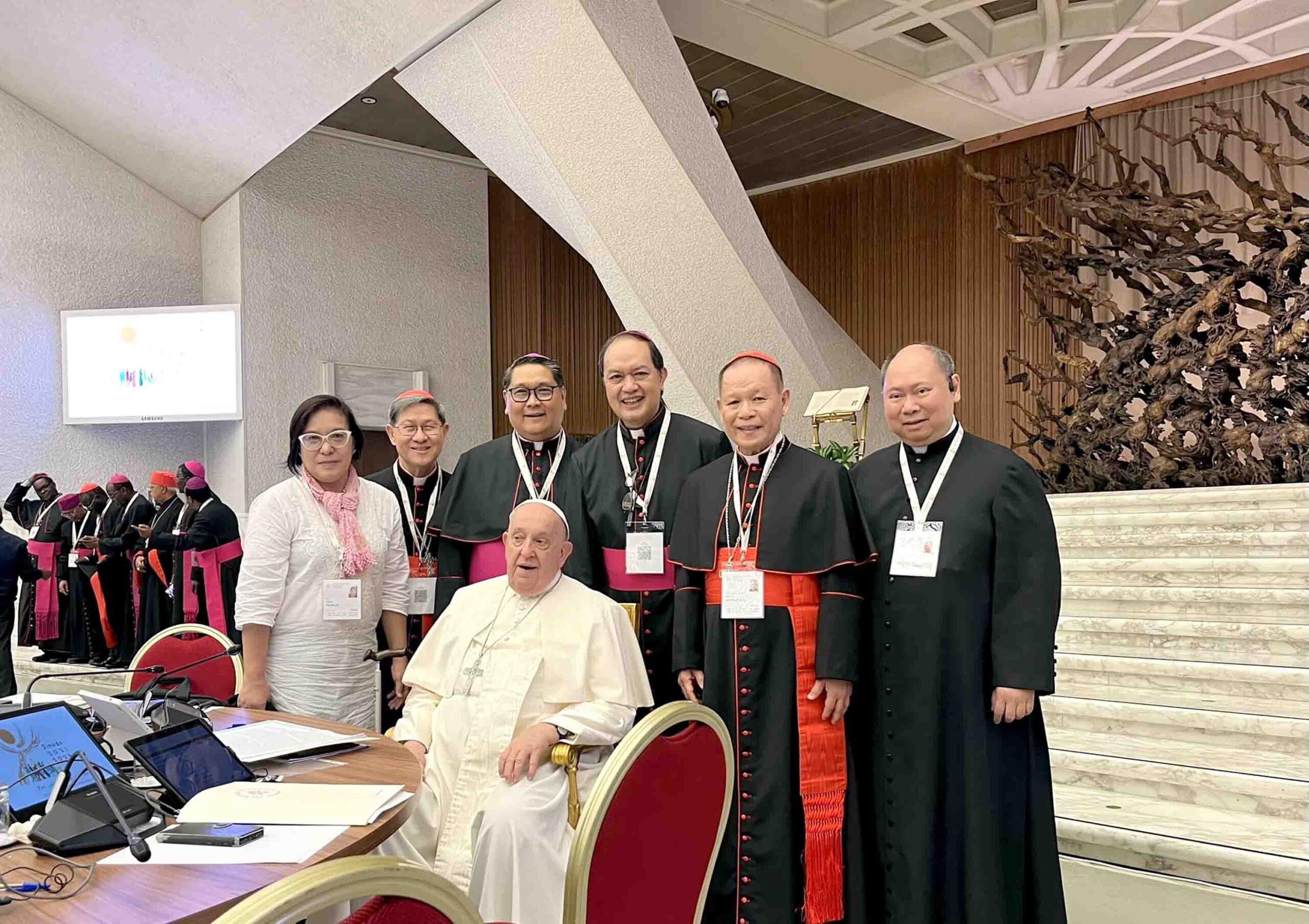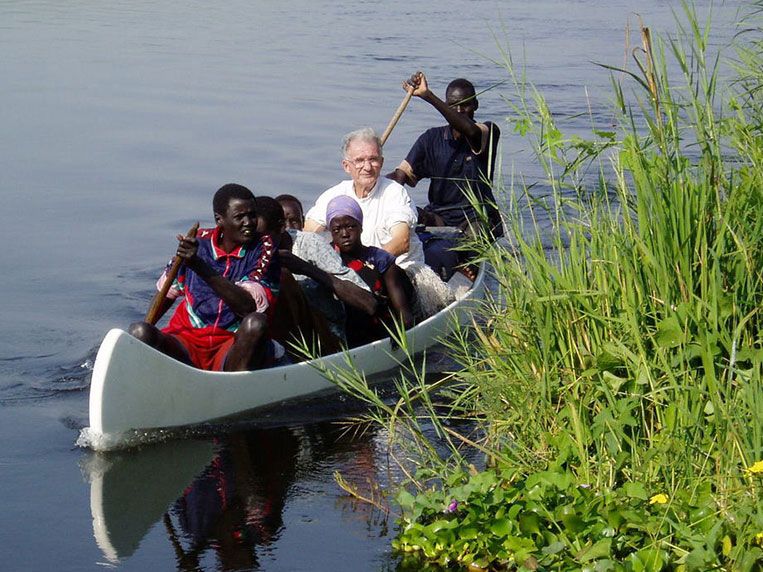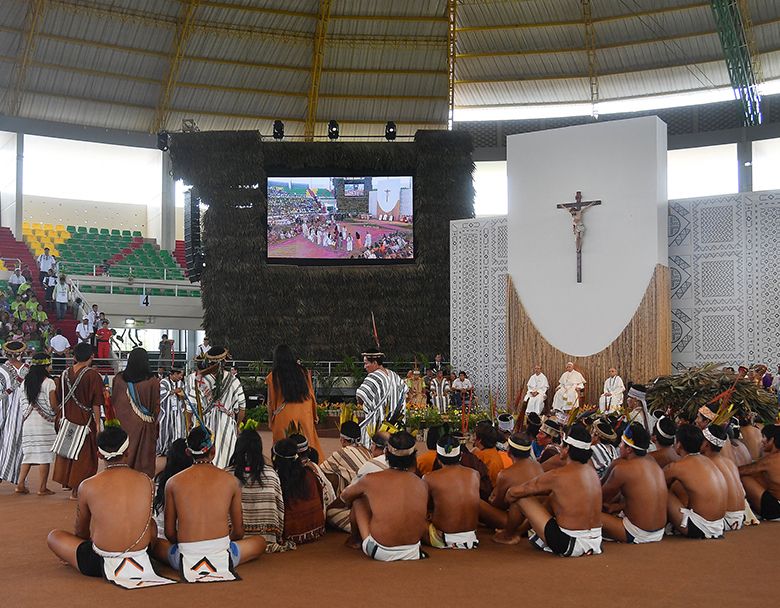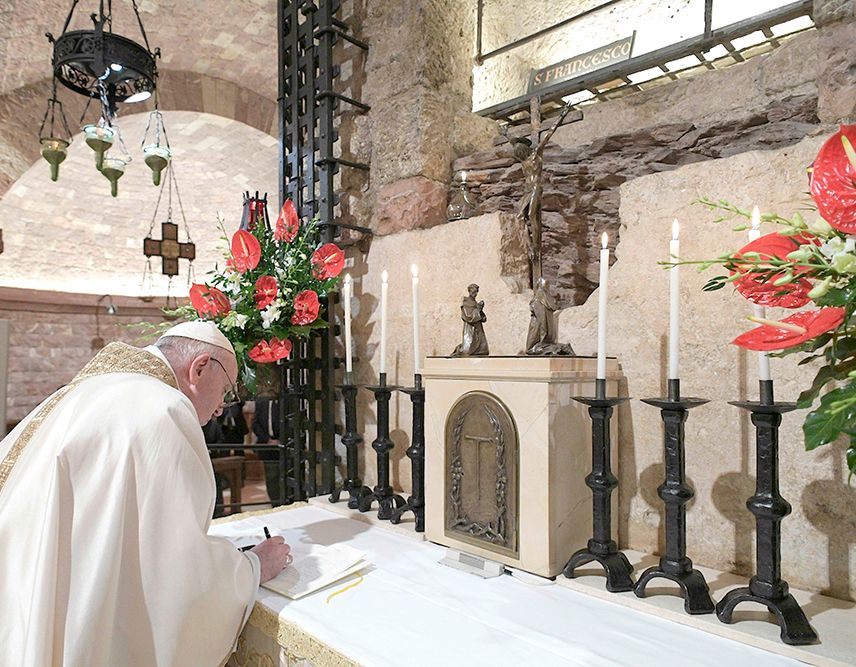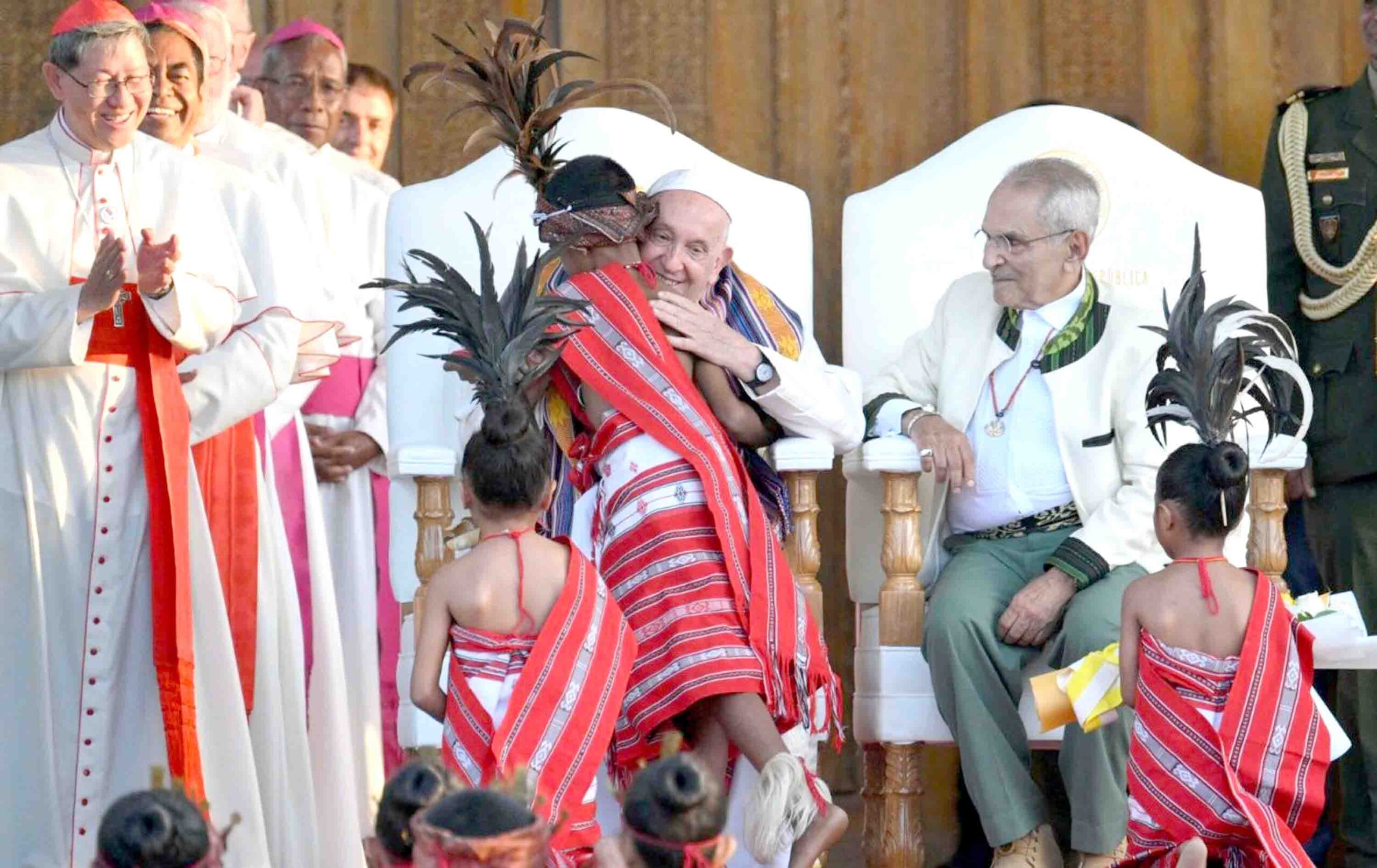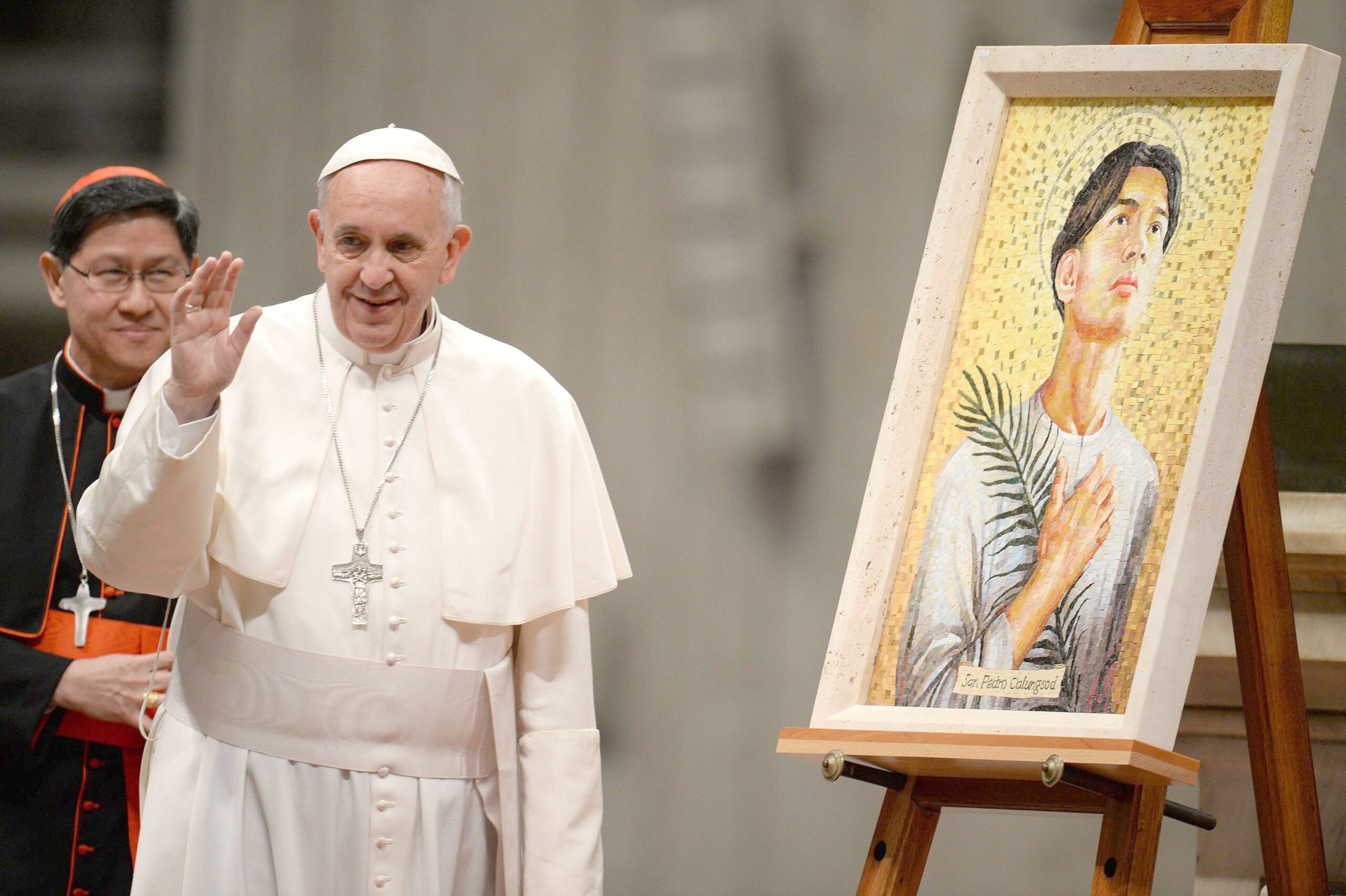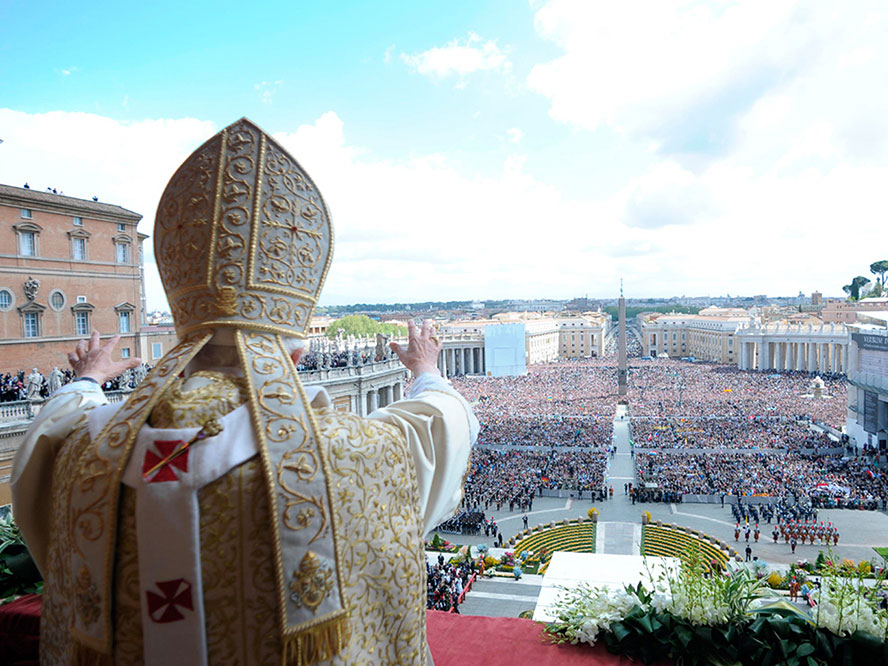Jesus Christ. How many times have we said these two words? Surely, a Christian calls his Lord: Jesus Christ. Certainly, most priests will quote Him, at least, once in their sermons: Jesus Christ. Yet, have we ever thought that if Jesus is the name of a historical person, Christ is not His name? It is not even His last name. Jesus is a name and Christ is a title. In fact, the exact diction should be “Jesus, the Christ.” What is the meaning of saying “I believe in Jesus Christ”? I think it would be interesting to explore more what lies behind a name, and see how the realities it signifies shape our faith in the Lord.
Jesus, son of Joseph, was born in what we call Holy Land some 4 to 6 years before the beginning of the modern era. A mistake in calculating His date of birth brought us to start the Christian era when Jesus was actually a small boy. The Gospels tell us that He was born in Bethlehem, yet as an adult He is always referred to as the Nazarene, the one from Nazareth. So where was He really from? It is difficult to say. We reason in a historical way, while the Gospels were written not as books of history, but as Good News, they portray the truth of faith for salvation, not always the truth as we understand it currently. Matthew and Luke speak of Bethlehem because they need to show how Jesus was indeed in the line of David, who was from Bethlehem. Mark and John, who do not place much importance on Jesus’ genealogy, simply name Him after the town He came from.
This already tells us something important: Jesus was a person born in history; He had a father and a mother, and He was clearly born in one place. At the same time, the Gospels are not interested in telling us about the historical Jesus; they were written to tell us about His message and meaning. We should be discerning in understanding the history of Jesus as different from what we read in the Gospel. In fact, the Gospels are silent about Jesus’ life until He starts his public life. Where did He live? What languages did He speak? What work did He do to support Himself? Where did He study the Holy Scriptures that He used in preaching so well? We simply do not know, but we can still learn something from what the evangelists tell us.
A middle-class worker
Jesus grew up in Nazareth. This was a small village in Galilee, not far from a large town, Seforis. Even though Seforis is never mentioned in the New Testament, this large town could not have escaped the interest of the young Jesus. Growing in rural Galilee, Jesus was accustomed to look at nature with interest. Later on, during His teaching, He would use what He learnt from His observation of reality: “You cannot hide a town built on a hill;” “you know how to read the signs of the time;” “no one places a patch over old fabric;” “you do not put new wine in old skins;” “a sparrow is sold for two coins at the market;” “look at the flower in the fields” … All these sentences reveal a keen ability in discerning reality and learning from it.
Jesus also knew His culture, and made use of proverbs, stories and fresh news in His talk: “Doctor, cure yourself”; “you heard of those on whom the tower of Siloe fell”; “let the dead bury their dead.” It is enough to read some of His parables to realize that He knew how to collect information from everyday’s life and turn it into a story full of meaning.
We know, next to nothing, about Jesus’ life before His public ministry. Since He started His teaching when He was around thirty years old, certainly he had a job to support himself. The tradition at the time was: for a son to follow the footsteps of his father. Most probably, Jesus was a carpenter like Joseph, His father. Contrary to what we usually hear, carpenters were not poor. At the time of Jesus in Palestine, fishermen and carpenters were well-to-do middle-class people. Carpenters were needed to repair tools, so that all other workers could carry on their trade. They also built furniture, boats for fishermen and merchants, and often acted as smiths. As a carpenter, Jesus must have travelled in His region and used Aramaic in everyday’s life. However, he was bound to learn a little Greek. Greek was the vehicular language at the time, and it allowed people from different cultures to communicate, more or less like English today which is spoken by many as a second language. Most probably, He knew Hebrew also. Hebrew was the language used in the Holy Scriptures. It had been the language of the Jews, but lost importance with time, while Aramaic took over. Jesus shows a great knowledge of the Scriptures, and we can presume that He read and understood Hebrew.
The death of an outcast
As a Jew, He was circumcised a week after His birth and offered to God in the Temple, in Jerusalem. He learnt to respect the 613 laws present in the Torah, and knew about the 1,251 forbidden actions on a Saturday. He went to the synagogue to pray with the local community and learnt many passages of the Holy Scriptures by heart. All young men were supposed to marry and raise a family. So, people must have looked at Him as a little odd since He did not marry; yet, had a good social life. When we say we believe in Jesus, we state that we believe in this person who lived two thousand years ago in Galilee and grew up in a Jewish cultural background. Here, He understood to be the Messiah and called to bring about salvation to all.
Well, most probably you knew all I said so far. However, do you realize that Jesus of Nazareth, son of Joseph, carpenter and preacher, did not die? No, He did not die; He was killed, and killed on a cross! The cross was an instrument of torture and death. It was considered the worst death for a criminal. Roman citizens, no matter what they had done, could not be crucified. The cross meant death for the accused and shame for his family. Those connected to a crucified person were considered outcasts, enemy of society. Yet, this Jesus who died on a cross is now risen. He had said He would rise again, but who could believe the word of an outcast?
This is why, early in the morning, two of His disciples unhappy for the tragic end of their master, are running away from Jerusalem. They are disheartened and wish they never followed Jesus. They are going towards Emmaus, the place was then famous because, there the Maccabees won a crucial battle for the freedom of Israel, the last victory in the long history of the chosen people. A man, coming from nowhere, starts walking with them and asks what is going on. They rebuke Him, but the stranger intervenes again. He is told of Jesus, and how His followers who went to see the tomb after the festivities found it empty. Many declared to have seen Him alive. He also appeared to the apostle, yet the two travellers do not believe. The stranger then shows them how the Scriptures had foreseen all that happened to Jesus, how he was to suffer and rise to new life.
When evening came, they all entered an inn and shared supper. It is here, at the sign of the breaking of the bread that they realize who the stranger was. He was Jesus who walked with them and opened their eyes with the sign of his total donation: the shared bread, the shared body, the Eucharist. The two disciples, who were afraid and discouraged, now feel the strength to go back to Jerusalem and give their testimony. They met the Christ of faith.
Salvation and peace for all
The Easter experience allowed the first community to realize that the Jesus they knew and followed is also the Christ of faith. They finally understood that Jesus was the Messiah, even though not the Messiah they were expecting. They thought Jesus would organize an armed struggle against the oppressors, the colonizers. They believed Jesus would easily defeat the enemies of Israel and guide the people to new glory. Instead, they now see that Christ wishes peace, that He came for all the people on earth. The experience of Easter, and later of Pentecost, makes them ready to go out and preach who Jesus really was.
The full understanding of Jesus took time. Even today, we are still discovering the Christ of faith. The early community had to struggle with the idea of the Kingdom of God open to everyone. There were tensions within the Church about the Jewish heritage, the liturgy, the books of the Scriptures, and on and on. Yet, little by little, the first believers came to understand that Jesus, the Christ, was really walking with them and guiding their decisions.
Going back to what they heard and saw while Jesus was with them, they understood how He always followed the Father’s plan. They remembered how He accepted John the Baptist’s ministry, but also took His own path to preaching the Gospel. They realized He had started a new people of God, given them a new Law – the law of love, the Beatitudes, the power to call God, Father – which did not take the place of the old Law but perfected it. The first Christian community could really say: we have seen Him, touched Him. Jesus is Lord!
If the man Jesus experienced human limitations, the Christ of faith is free from that all. Christ is now alive, present wherever two or three gather in His name. Jesus was human, totally human and lived in a specific place and time. Christ lives continuously in the community of those who believe in Him. He is neither man nor woman, but everything to all. He is neither free nor slave, but brother and sister to all. He is neither White nor Black, but intimately part of any human experience.
We are used to calling Jesus, Lord, but perhaps we should think more about the meaning of those words. Only God can be called Lord. Only God is above every creature. Only God has a Name that is over any other name. To say that Jesus is Lord means to recognize Him as God. Not simply Son of God – which, in Jewish mentality of that time, meant a similarity, a closeness to God – but God Himself. The Jesus of history was a man like many other men; the Christ of faith goes far beyond that. Today, we can proclaim that Christ is God, that Jesus is Lord!


